After paying homage to Lagosians of Isale Eko ancestry with her musical “Saro,” Bolanle Austen-Peters does same with her latest feature film, “The Bling Lagosians.”
Austen-Peters who CNN has described as Nigeria’s theater impresario, took a shot at filmmaking by serving as co-producer of the 2016 drama titled, “93 Days.” This time around, she makes a bolder move by directing “The Bling Lagosians.”
The premise of the comedy is that one per cent of Lagos’ upper class who represent the true high society of Lagos will always be exclusive. And no matter how low they may fall, they will get back on their feet because of their family name. She calls them ‘The 1% of the 1%.’ And seeks to portray that exclusivity with the bling-bling. The bling in terms of jewelry is seriously lacking but she makes up for it with luxurious cars – albeit absent at the Holloway residence car park, yachts and parties. At the same time, her story indicates that most of the time, the show of wealth by the upper class is a charade. The main characters are proof.
The cast of the film is a bevy of stars. Elvina Ibru and Gbenga Titiloye play the lead, Mopelola and Akin Holloway. They have two daughters, Demidun and Tokunbo. Osas Ighodaro-Ajibade and Sharon Ooja Egwurube play Demidun and Tokunbo, respectively.
Akin and Mopelola also have their respective cliques. In Mopelola’s are Dunni Fernandez (Toyin Abraham), Kiki Princewill (Bisola Aiyeola), Ngozi Gomez (Monalisa Chinda) and Oge Briggs (Winihin Jemede). On Akin’s part, he has Honourable Alabi Ojo also known as Baba Eko. Baba Eko is Akin’s godfather. Jide Kosoko portrays Baba Eko. The men love tennis and women. Yet, they worship at the cathedral in Lagos Island.
As the story goes, the Holloways own a conglomerate, St Ives. They are livin’ la vida loca. Their resources are fast depleting yet they are in denial. Mopelola wants to throw a lavish 51st birthday party. It must be ‘unrivaled in the land of Eko partydom.’ Otherwise they ‘would have failed woefully.’ Akin pleads with Mopelola to have a low-key celebration as they are at risk of losing the family business. Yet, he and his wife are birds of a feather. He will not stop spending either.
Mopelola’s friends are a different kettle of fish. Kiki is insecure. Dunni is the the sincerest. She is the wife of the biggest fish seller and so she has new money. But she is an uncouth wannabe. Oge is not from high society but has cleaned up nicely. And Ngozi has a closely-guarded secret. Overall, the cast gives a strong performance. However, Abraham and Aiyeola are too young for the roles they play. As for Ms Ibru, it is splendid to see her in a leading role unlike the movie “She Is” where she barely spoke.
Ibru is a fine actress. In spite of that, the script puts a dent in her performance. For starters, one is at a loss when she refers to ‘the land of Eko partydom,’ albeit catchy. Or was the word specially coined as a slang for this film? Above all, her character is most dampened by the costumier who must have forgotten about the “bling-bling.” For a woman who can afford to spend one million dollars on a birthday party, her costumes could have been more luxurious. Likewise, Demidun. Her look was largely too dreary. Even worse was Mopelola’s lace seller. Her clunky but cheap jewelry will make you cringe.
A few scenes were also a bit far from reality. For instance, the scanty crowd in the church was not reflective of Baba Eko’s clout. Nonetheless, credit must be given to Anthony Kehinde Joseph for a detailed screenplay. He captured the lifestyle of Lagosians pretty well. The director also deserves praise for the film’s carefully chosen soundtrack. It includes Ninola’s “Designer” featuring Sarz and Brymo’s “Waka Waka.” “Designer” complements the screenplay and gives the film its upbeat vibe. It is also a moral suasion which emphasises the underlying message of the film. “Waka Waka” is equally excellent for the grim moments.
Sadly, the story falls victim to the Nollywood cliche – comical domestic staff. Helen Paul and Samuel Animashaun aka Brother Shaggy play the comical housekeeper and cook. Without them, “The Bling Lagosians” would still be entertaining. The touch of sarcasm from Mopelola and cohorts, as well as Alexx Ekubo’s compelling performance would have sufficed.
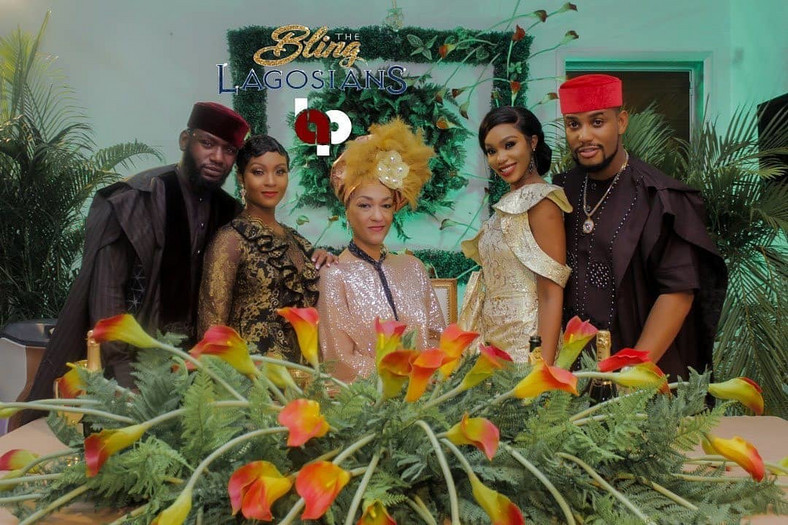
Amid the fun, the film has its heartwarming moments. In one of the scenes Mopelola gives Demidun a pep talk. It was touching but not as moving as when her daughters did the same for her. Those were great mother-daughter moments that might even move you to tears.
Still, perhaps the greatest strength of “The Bling Lagosians” is an interesting sub-plot about filmmaking in Nigeria. Austen-Peters touches the core of Nollywood and explores the factors that are limiting the industry’s growth.
In the sub-plot, Tokunbo, a lawyer, decides to build a career as a screenwriter. As a result, she finds a job with Nnamdi Agu (Ekubo), a filmmaker. After Tokunbo presents her idea to Nnamdi, not only does he paint a perfect picture of the conflicts of interest that Nollywood filmmakers deal with, Tokunbo experiences it firsthand. Nnamdi tells her that she wants to ‘win an Oscar,’ while he wants to ‘make money.’ It is a moment of truth.
The film wraps-up by showing that a good name is sooner lost than won. So, Akin must fight for his. And in the end, “The Bling Lagosians” is a story of resilience. A statement that no matter how low a Lagosian may fall, he picks himself up. It is the reason that most Nigerian want to settle in Lagos and be called Lagosians.
After all said, while “The Bling Lagosians” does not live up to its name, it is one of the more appreciable films to come out of Nollywood in 2019 so far. It will start showing in theatres on 28 June. You will laugh and one thing is certain, the phrase, ‘The 1% of the 1%,’ is here to stay!
Directed by: Bolanle Austen-Peters
Cast also include; Jimmy Odukoya, Denola Grey

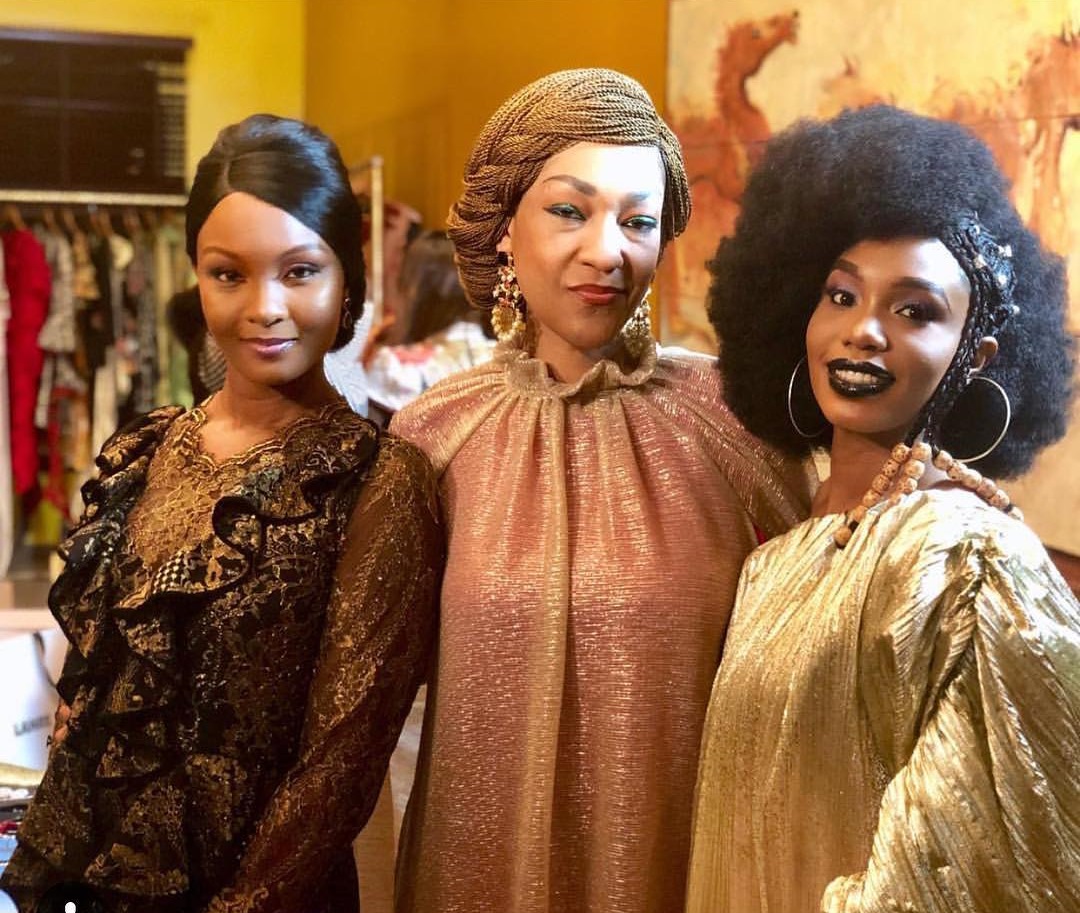
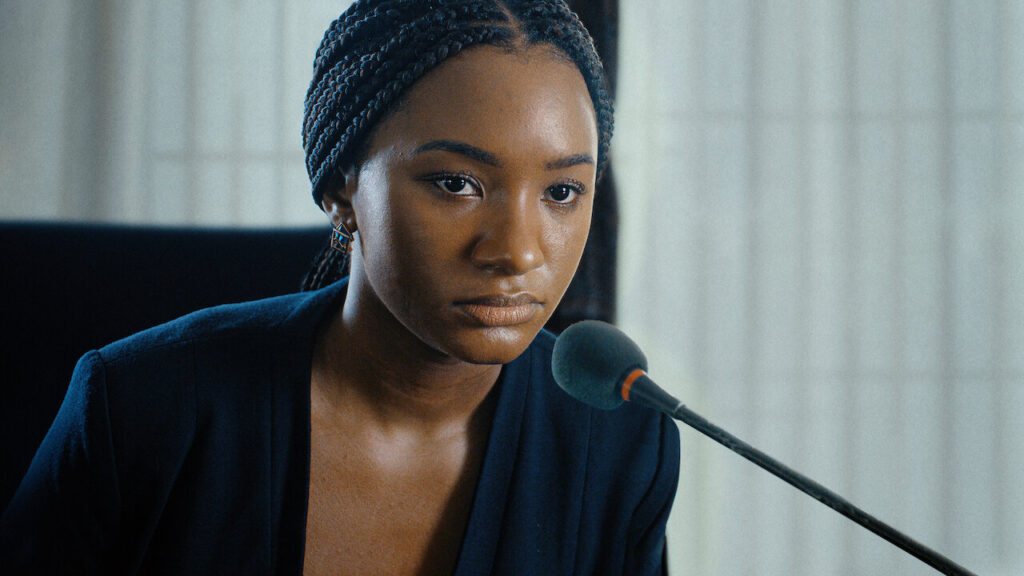
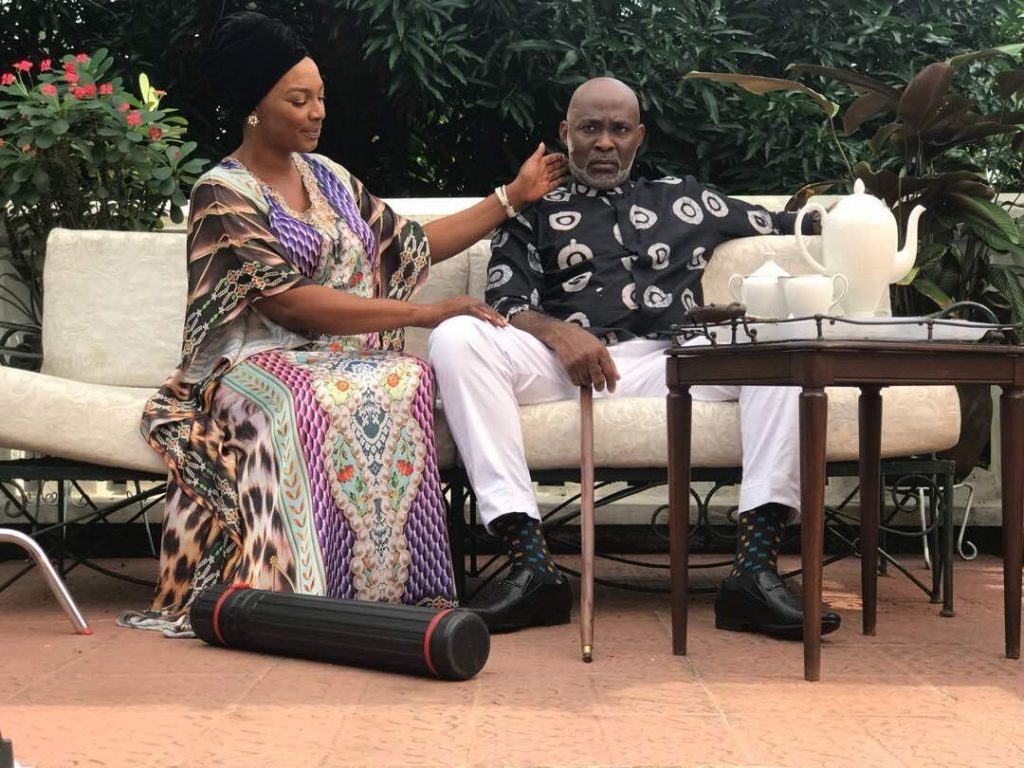
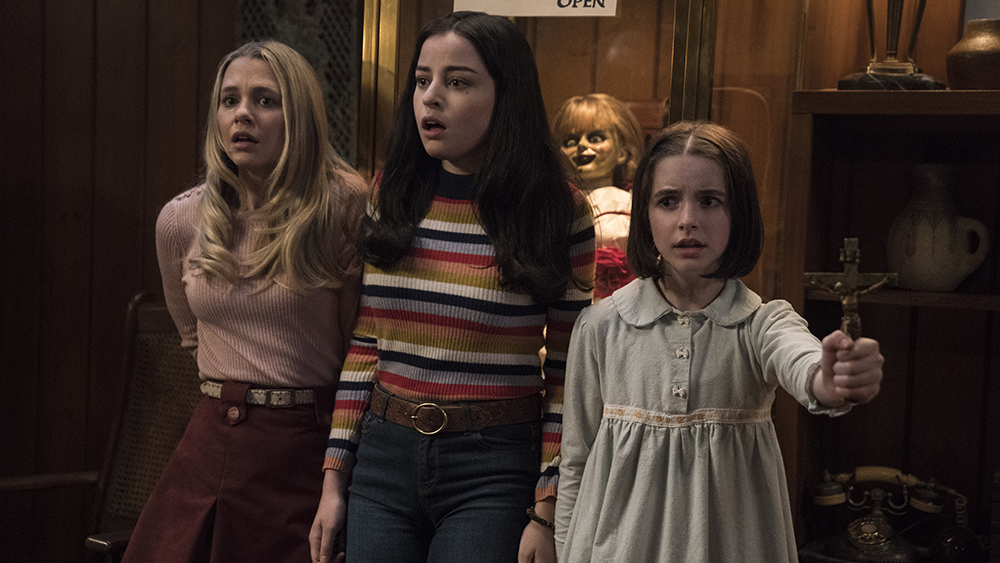
Nice critic.
Balanced review, indeed they are 1% of 1% that carry the wealth of 99%